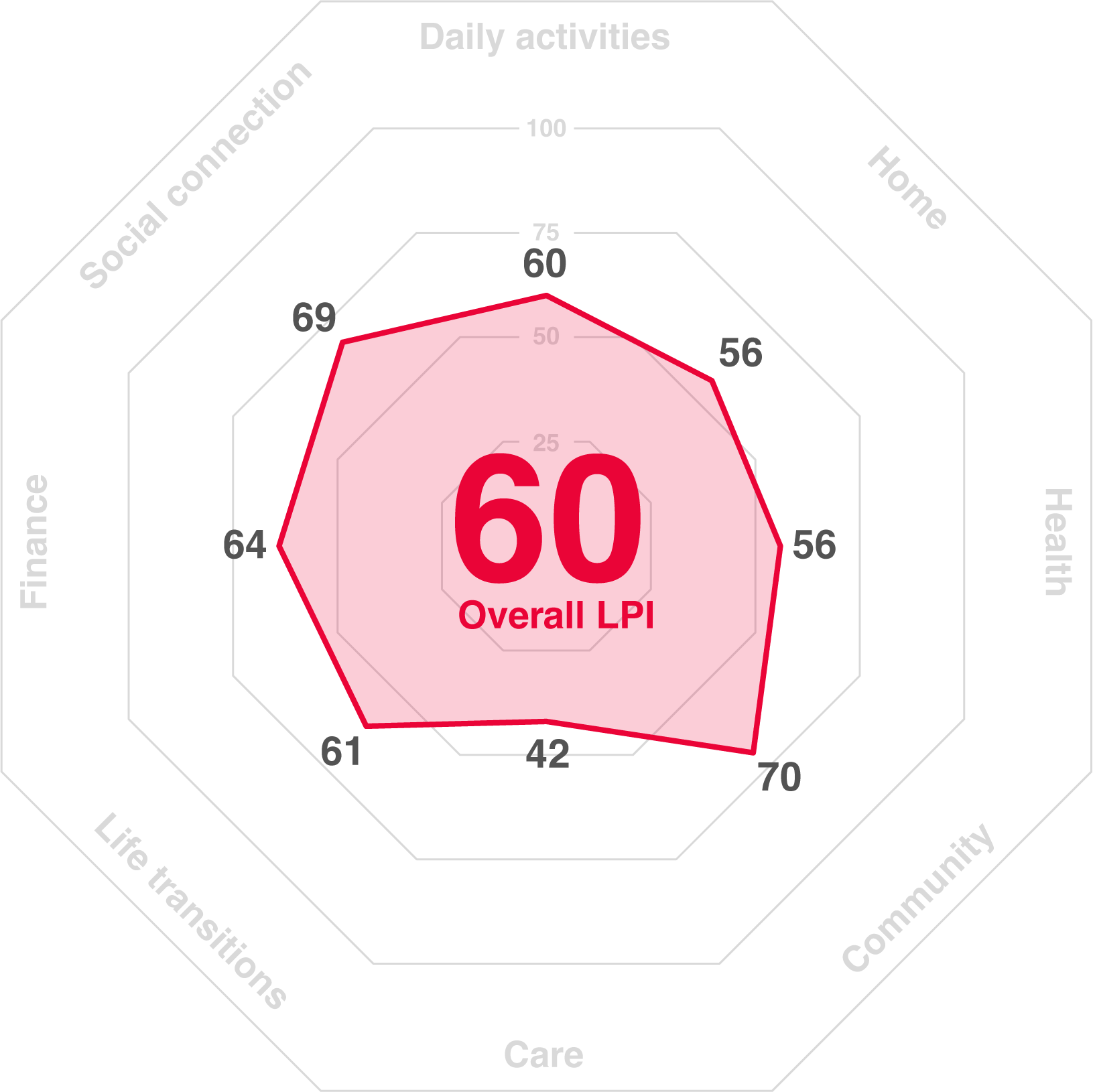The Longevity Preparedness Index (LPI)

Longevity is transforming retirement from a brief life stage to one that may last decades, requiring more than just financial planning to ensure quality living in older age. True preparedness for longevity is not simply a number in an account; it encompasses all the important areas of life.
The MIT AgeLab has identified eight key domains that are essential to longevity preparedness:

Many older adults will require long-term care at some point in their lives, and many people will become caregivers at some stage in their lives.

Livable communities feature proximity to healthcare facilities, grocery stores, and recreational areas, as well as robust transportation options.

Living well in retirement requires finding activities to organize and fill one’s days, weeks, and years.

Securing financial stability in later life requires sound financial planning and management.

Developing positive physical, mental, and cognitive behavioral habits has benefits for longevity and quality of life.

Modifying one’s home for accessibility, connecting with services providers, and adopting home technologies can prolong independence and increase safety.

Older age is characterized by significant and sometimes challenging transitions: retirement from paid work, requiring care, the deaths of loved ones, and the end of life.

Social connection refers to the quality of our social lives, encompassing relationships with family, friends, and community.
These domains form the basis of the survey-based Longevity Preparedness Index (LPI), a new comprehensive measure of what it takes to live well in later life.
Leveraging a US representative sample of over 1,300 American adults, the index assesses preparedness across each of the eight domains, assigning a score (of 0-100) for each domain alongside an overall score. The inaugural Index found that America scores a 60 out of 100 in longevity preparedness, indicating significant room for national improvement.
The scores generated by the LPI are intended not only as a diagnostic tool, but also as a roadmap, a wake-up call, and a catalyst for conversations.

This research is part of an ongoing partnership with Manulife John Hancock. Read the full 2025 report here.
Related Media
The Boston Globe: 'People think they are invincible.' Most Americans are unprepared for aging, studies show.
Forbes: America's Retirement Curriculum Needs A Longevity Rewrite
CBS News: Americans are living longer, but many are making a costly mistake about old age
Take the Next Step
Make innovation possible - Learn how you can contribute to AgeLab research.